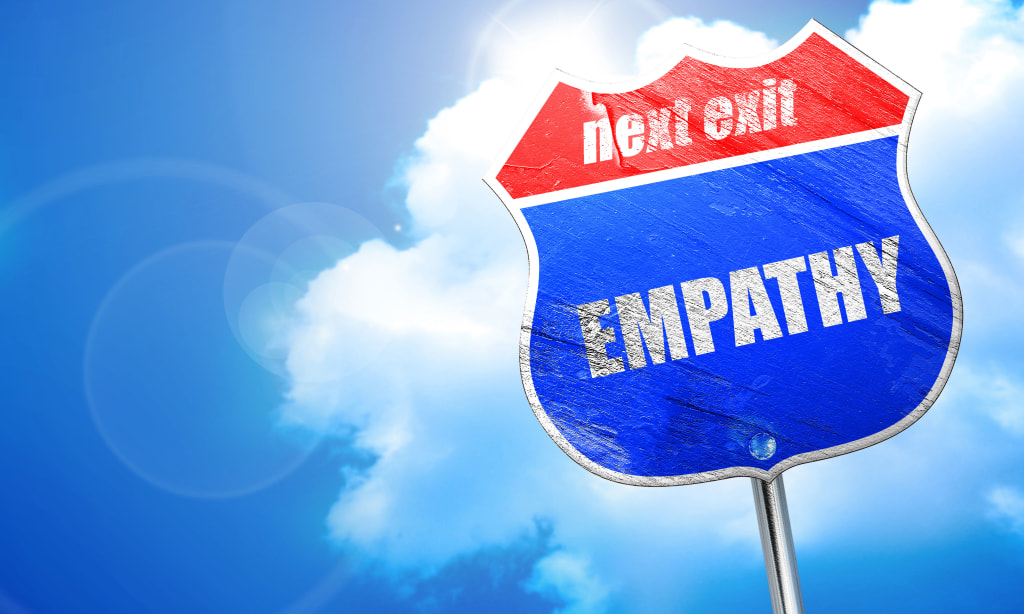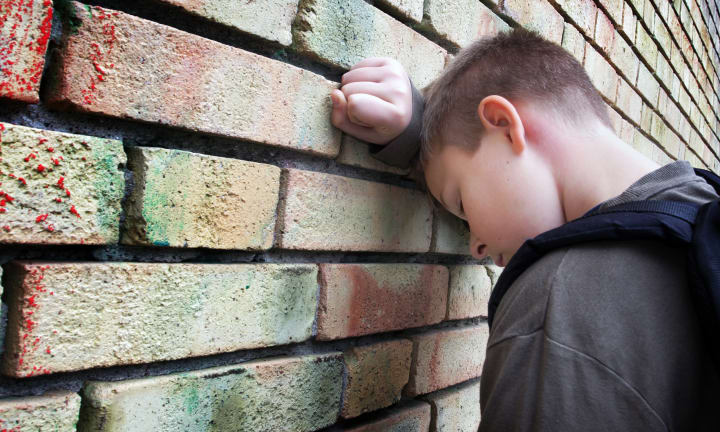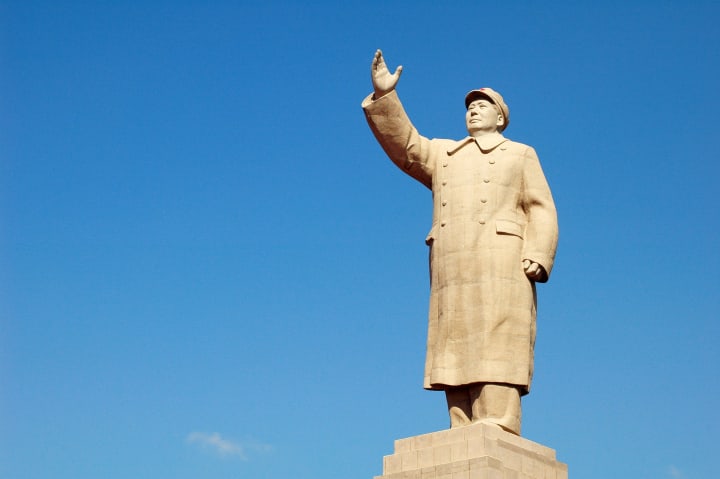Empathy: The Salvation of Mankind
In a world where humans are losing their ability to empathize with others, how do we preserve a skill that is required for the preservation of the species?

The emergence of the technological revolution has shrunk the world, but for many, we are further away from each other than ever before (Unless you play Pokémon Go still). Social media connects us, but the gulf of understanding and accepting each other's thoughts and ideas betrays our lack of concern. Empathy is an inherent gift of evolution, it has helped humanity spread and flourish around the world. However, without training and practice, it is a skill that humanity may lose. We are born with the capability to walk, yet if we do not use our legs, then they grow brittle, It is the same with emotional health. If we do not practice or utilize our ability to empathize with others, then we will be unable to render support when such an ability is necessary. To ensure the progression and stability of empathy in future generations, there are several steps we must take.
Education and Training For Kids

Kids not being taught how to empathize with others has a cascading effect on the rest of their lives. For instance, in a University of Michigan study conducted on college students in the United States found a 40% reduction of empathy in the past 20 to 30 years. If this trend continues, by 2100 we'll all just be robotized minions controlled by tiny devices in our hands, oh wait...
Advancing Technology Empathetically

We see positive social media application every day from the support we give when something tragic happens, or when we see one of our fellows in dire need. Examples of this are the ALS ice bucket challenge that spread around social media, or when donations and support fly in for the victims of mass shootings. Whenever a platform can bring people together, it is a positive use of technology. When people feel like there is nothing that can hurt them, the worst comes out. Andrea Polito was a wedding photographer doing her job for a happy couple tying the knot. There wasn't any issue until Andrea needed to charge the couple an additional $150 for an album cover for their photographs. The couple refused and bullied the wedding photographer so bad on social media that she ended up losing her entire business worth over $1 million. Luckily a judge awarded her over a million dollar settlement, but often times these things don't have happy endings. For example, a good Samaritan in Lakeland Florida was run out of town after saving a lost child and trying to help the toddler find her parents. Once they located the dad, the man was rewarded by being punched several times. Even after the police determined the man was only trying to help, the family of the toddler shared the man's picture, Facebook page, and place of business on social media. After a mass outcry, the man was forced out of town. Police said only one person called them to get the correct information.
Advances in future technology seem marvelous, from driverless cars that will decrease automobile deaths, to advancement in medicine. Many of these technologies seem wonderful and life-changing to a lot of people on the surface, however thinking of some of the ramifications and how we can solve them for others who are negatively affected is the key to transforming the technological revolution into a new empathetic revolution.
Take the oncoming advancement of driverless cars. I for one am thrilled about the prospects of not having to drive my car down the freeways of Los Angeles anymore! It should also cut down on the nearly 40,000 automobile deaths reported in the United States in 2016. However, there is a group that will be negatively affected by the shift of technology. This group includes taxi drivers, Uber, Lyft, truckers, and anyone else who directly makes their money off driving in any way. These people will all be out of the job, some of them, like truckers who had to buy their own rigs may be out of the job and left with massive debt! We've seen this in West Virginia as coal has become less of a focus and technology moves forward. How do we safeguard the livelihoods of those who made a living off of old technologies? We must not leave people behind as we jump to the future save we lose our humanity by damning them into a box they and their future offspring cannot escape from. This is what I mean by empathetic technological advancement, by abandoning these people to the past, we abandon our own empathy towards them.
Never Forget the Horrors of the Past

Since the human memory degrades from generation down to generation and stories become either eroded, misinterpreted, or propagandized the only real form of remembrance we have is through history; the written word, pictures, and video. The danger is now becoming that these forms of history are under attack. So much so that seventeen countries had to adopt laws that BAN holocaust denial! Yeah, you heard that right it was necessary for certain countries to make denying the Holocaust a criminal act. When you figure that only around 33% of everyone in the world has ever heard AND believes the Holocaust has been depicted accurately in the history books, it's not hard to imagine why these laws were necessary.
How we remember history often stems first from how and what we teach our children in school. Textbooks and teachers are the front lines of defense of our history and how we remember it. Unfortunately, too often textbooks can paint very different pictures of what history was. For example in Texas, the textbooks about the United States civil war make the reasoning for the south's breakaway as solely a states' rights issue, while in other parts of the country it is taught that the south broke away due to issues with the union wanting to outlaw slavery. These are slight differences, but make a HUGE impact on how certain people view this conflict. If seen as a war for states' rights, the south then becomes a force people can sympathize with versus if they are fighting a war to defend slavery.
History is like math, there is no room for interpretation, it either happened or it didn't. In no realm of reality was Hitler a kind gentle man who only cared about protecting the Jewish people. He was a mass murdering sociopath. That is something that should not need to be disputed, unfortunately, it must be said, often and with confidence. Anyone who disagrees with that FACT, or any other FACT relating to history, should be scrutinized and pushed to the fringes of society save their ideas of twisting reality become the norm. We must not forget how brutal the human being can be towards its fellows when empathy is forgotten, doing so will ignite the next mass genocide, or bring back Crystal Pepsi.
The Future of Humanity

One day the human race will seek deep into the stars. We will settle and colonize other worlds, other stars, and we will most likely meet other intelligent species. When that day comes, our emotional health must be on par with our technological ability. If it's not, then history has a way of repeating itself, and the history of humanity is bleak and terrifying.






Comments
There are no comments for this story
Be the first to respond and start the conversation.